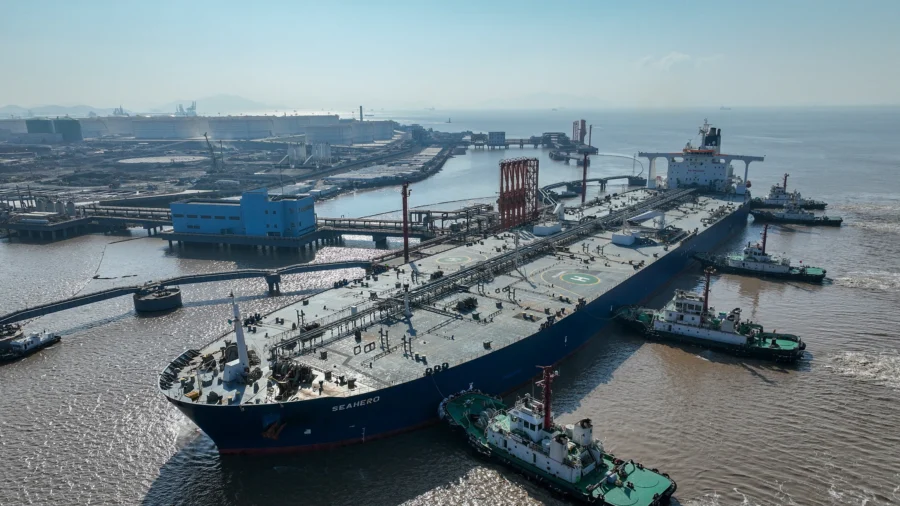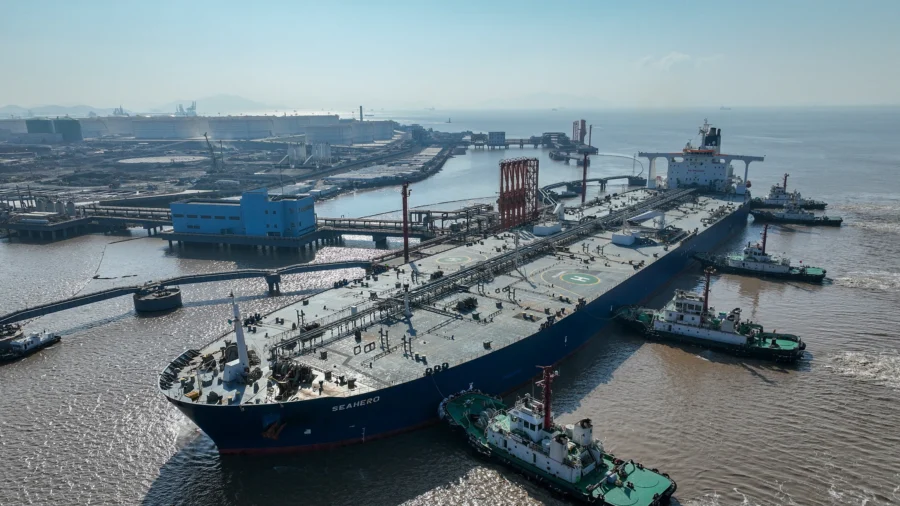
U.S. President Donald Trump said on Tuesday that China can continue to buy oil from Iran after his administration issued sanctions over China’s purchasing of Iranian oil in the past months.
Brent crude futures fell $4.02, or 5.6 percent, to $67.46 a barrel at 1:26 p.m. ET. U.S. West Texas Intermediate (WTI) crude fell $3.84, or 5.6 percent, to $64.67.
Brent was on track for its lowest settlement since June 10 and WTI for its lowest since June 6, both before Israel launched a surprise attack on key Iranian military and nuclear facilities on June 13.
Iran maintains that its uranium enrichment programme is for peaceful purposes and denies trying to build nuclear weapons. In November 2024, the International Atomic Energy Agency condemned the regime for the second time in five months for failing to cooperate fully with the agency’s inspectors monitoring its nuclear program.
Most of Iran’s oil, which the regime was forced to sell at a discount, went to smaller Chinese refineries called “Teapots,” which depend on cheap crude to reduce costs.
On March 20, the Treasury for the first time sanctioned a “teapot” refinery, which allegedly bought and refined “hundreds of millions of dollars’ worth of Iranian crude oil” from vessels linked to the Houthis, a terrorist organization, and the Iranian Ministry of Defense of Armed Forces Logistics, which is sanctioned by the United States.
Actual lifting of the sanctions on Iranian oil will take action by the Treasury and State Departments, and Congress. But the Trump administration could choose not to enforce existing sanctions, which could increase the flow of oil to global markets.
Jackson Richman and Reuters contributed to this report.


